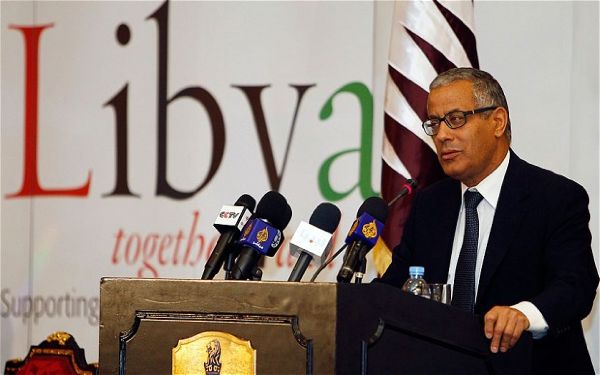Libya Swears in Newly Elected Government

On Wednesday, Libya swore in its newly elected government, with 19 new cabinet ministers under Prime Minister Ali Zeidan. The ceremony was held under heightened security due to lingering unrest between rival militias that ousted the former dictator, Muammar Gaddafi. The ministers swore to uphold the goals and constitution of the 17th of February Revolution.
Eight cabinet ministers were absent from the ceremony, accenting the disorder in the wake of the newly elected government. The ministers in charge of electricity, higher education, relations with congress and interior in new government were rejected by the integrity commission because of questionable sympathies and ties to the former Gaddafi regime.
The ruling on the other four cabinet nominees (foreign affairs, agriculture, social and religious affairs) is in progress. The previously nominated prime minister, Mustafa Abushagur, was removed from his post after receiving a vote of no confidence by congress. His two attempts to win approval for his cabinet were met with disapproval due to controversial ties with the previous government.
The deployment of the Libyan security forces, in addition to detection dogs and trucks mounted with anti-air craft guns, was a reaction to last month's storming of congress. A group of objectors composed of civilians and militia forces gathered outside the General National Congress, firing weapons.
Eventually, they invaded the hall as the congress deliberated on the Zeidan's cabinet line-up. The charge was instigated by dissatisfaction with the prime minister's cabinet nominees, some of whom were accused of being loyal to the former Gaddafi regime. The interruption led the congress leader, Mohammed Magariaf, to postpone the session.
The newly elected National Congress came into power on August 8th, marking the first peaceful transition of power in Libya's modern history. However, the fighting in the Libyan capital of Tripoli earlier this month is indicative of the nation's regional and sectarian tensions, and is only made worse by the refusal of militia groups to disarm.
In response, the liberal leaning Zeidan has made an effort to geographically balance out his cabinet, as well as appointing six independent ministers (defence, interior, justice, foreign affairs, international cooperation and finance portfolios) and two women (social affairs and tourism). The delicate government is further augmented by the six political parties that comprise the congress. Currently, 120 of the 200 seats of congress are occupied by independents.
Despite the progress made by the new Libyan government, the widespread unrest instigated by the civil war, militia groups, factionalism and violence following the Arab Spring and Gaddafi's removal have created a wide array of challenges for the budding democracy to tackle.




